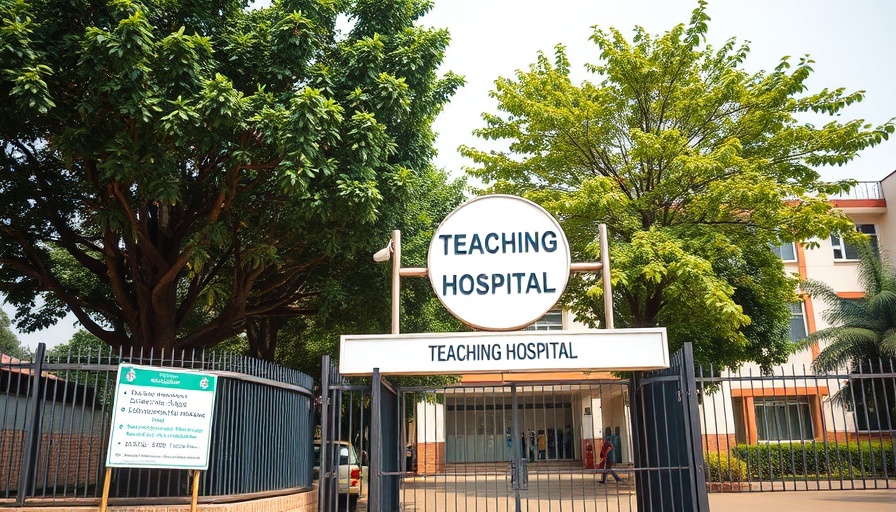
The Resurgence of Kidney Transplant Services in Nigeria
The recent revival of kidney transplant services at the University of Maiduguri Teaching Hospital (UMTH) marks a significant milestone for healthcare in Nigeria. After a notable hiatus of 15 years since the first successful transplant performed in August 2010, the hospital has re-established this critical service with enhanced capabilities and resources. This is not merely a resurrection of facilities; it is a testament to the commitment of the hospital and the Nigerian government to address renal health challenges faced by its citizens.
In UMTH Conducts Second Kidney Transplant After 15 Years, the discussion dives into the challenges and advancements in kidney healthcare in Nigeria, exploring key insights that sparked deeper analysis on our end.
Building a Sustainable Kidney Care Infrastructure
UMTH’s journey toward reintroducing kidney transplants is characterized by a focus on sustainability. The hospital has upgraded its facilities to become the largest kidney center in Nigeria, featuring an impressive 85-bed capacity for kidney disease patients, four state-of-the-art operating theaters specifically designed for renal surgeries, and an in-house laboratory for essential HLA typing—eliminating the previously necessary external laboratory control. This expansion underscores the hospital's dedication to developing a comprehensive kidney care infrastructure capable of supporting patient needs effectively.
A Groundbreaking Initiative: Affordable Dialysis Programs
In a statement, the representatives of UMTH commended the federal government's introduction of a highly subsidized dialysis program, allowing patients to access dialysis for just 12,000 naira (approximately $8). This initiative is groundbreaking, as it positions Nigeria as one of the countries offering some of the lowest dialysis costs globally. Such efforts remove financial barriers that have often prevented individuals from seeking life-saving treatments.
Challenges and Opportunities in Renal Healthcare
Despite the optimism surrounding the resurgence of transplant services, the journey remains fraught with challenges. The high cost of post-operative drugs persists, as transplant patients require various maintenance medications associated with their surgeries. The hospital is actively seeking sponsorship to acquire these essential medications, particularly from private donors who are essential for the survival and health of the patients post-transplant. This call for action emphasizes the importance of public support in enhancing the reach and effectiveness of healthcare services in Nigeria.
Government Support and Collaborative Efforts
The role of the Nigerian government in improving kidney healthcare is becoming increasingly apparent. Both recent efforts and investments in equipment, thanks to federal support programs, have propelled the hospital's capabilities. The involvement of local leaders and medical professionals further underscores a collaborative approach to improving public health outcomes. Research initiatives are being launched to understand the pervasive rise in kidney diseases, a proactive step crucial in addressing root causes.
The Importance of Continued Vigilance and Support
While the revival of transplant services represents a substantial step forward, it is essential to maintain momentum. Patients often face compounded problems involving socio-economic factors, leading to a higher prevalence of kidney diseases characterized by diabetes and hypertension. Therefore, cognizance of lifestyle changes and environmental factors must be included in future analyses. The call to action for individuals and organizations to support kidney health initiatives extends beyond financial contributions; it encompasses the need for greater awareness and advocacy around renal health.
Conclusion
The resumption of kidney transplant services at UMTH is not merely a return to operations — it signifies a new chapter in renal healthcare in Nigeria, driven by sustainability, affordability, and patient-centered care. The necessity for ongoing support, both financial and infrastructural, will be paramount in ensuring the success of this initiative. Collaboration among government, healthcare providers, and the public is vital for fostering a healthier future for individuals at risk of end-stage renal disease.
 Add Row
Add Row  Add
Add 


 Add Row
Add Row  Add
Add 

Write A Comment